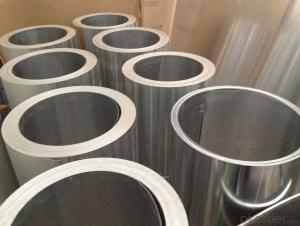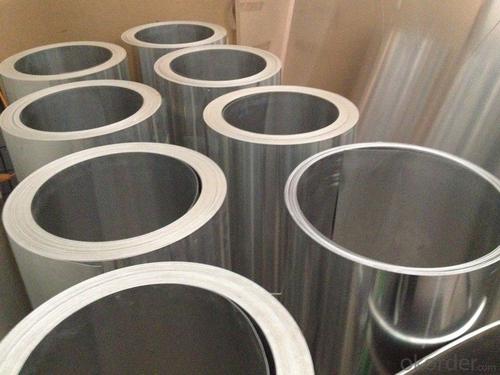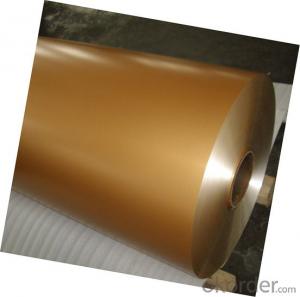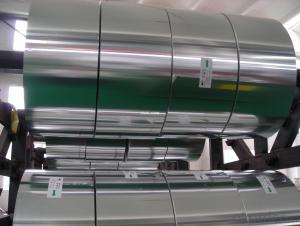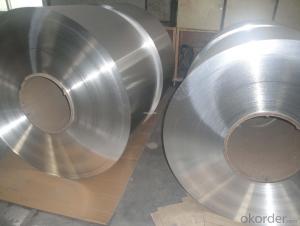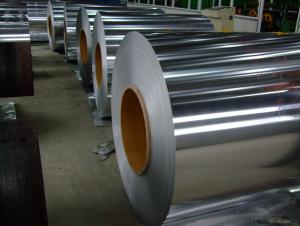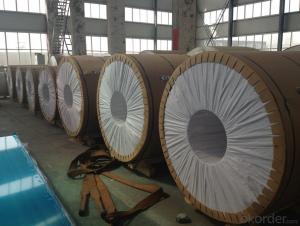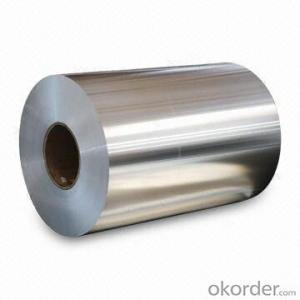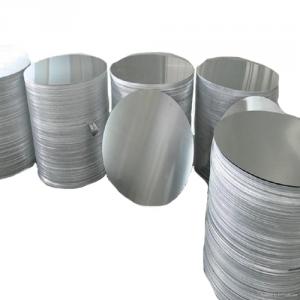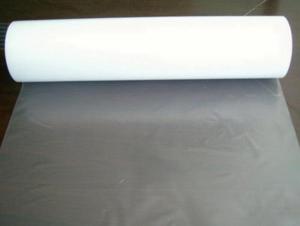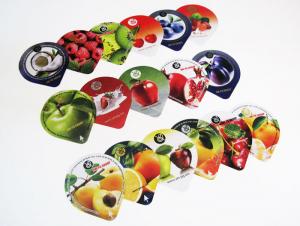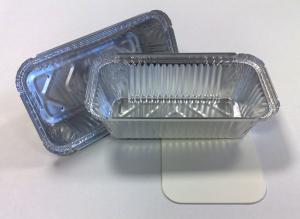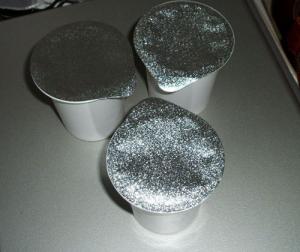Aluminum Coated Aluminum Coil for Gutter Made in China
- Loading Port:
- Shanghai
- Payment Terms:
- TT OR LC
- Min Order Qty:
- 5 m.t.
- Supply Capability:
- 100000 m.t./month
OKorder Service Pledge
OKorder Financial Service
You Might Also Like
Specification
We produce color coated aluminum coil and aluminum foil for food container professionally.
The detail information as following:
Thickness :0.05mm-0.5mm
Width :20-1500mm
Alloy : 1100,3003,8011 and other different series
Temper : H12/H13/H22/H24 and others
Usege: food container and industrial usage.
Pack details:pack in rolls with plastic film by wooden box.
Container loading: 1x20ft container can load about 18 tons.
Company Information
CNBM is in aluminum foil, coil, sheet, plate for more than 10 years, thus we have rich product, technology and market experiences. With the world’s top aluminum processing equipments, experienced technical staff, cooperative and professional sales team, and the enterprise concept of responsibility and sharing, we have been widely focused since the day set up, and has gained high praise from customers home and abroad until now.
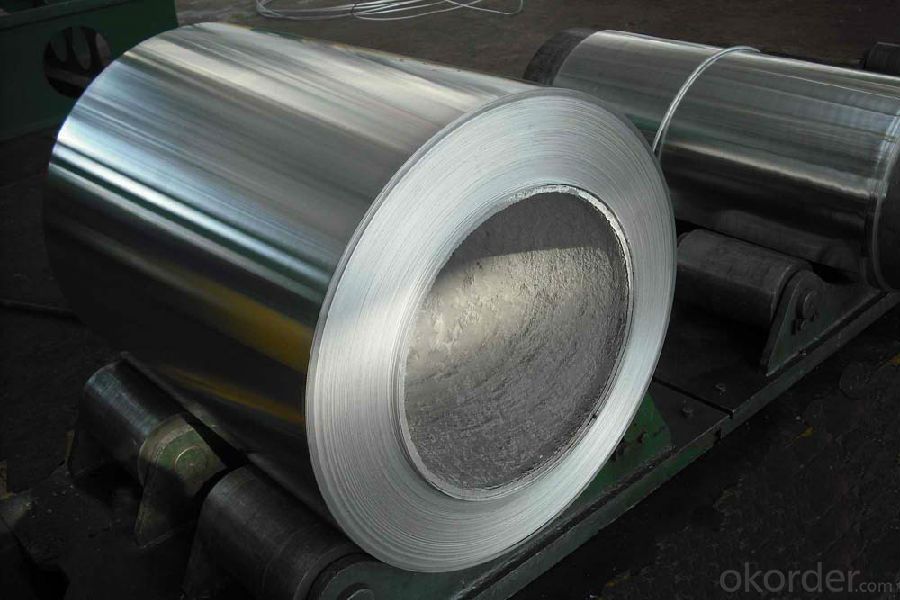
We specially produce and sell all kinds of aluminum foil, coil, sheet and plate with different sizes and applications. For Foil product, the main gauge ranged from 0.006mic to 0.10mm, and width ranged from 200mm to 2000mm. Alloys are 1235/ 1050/1060/1200/8079/8011/8006 etc, and ID is 76mm, 152mm. The main application includes flexible package, cigarette foil, golden card foil, pharmaceutical foil, household foil, container foil, air conditioner foil, lid foil, beer mark foil etc. We also can supply aluminum coil, strip, sheet and plate in alloy of 1000 series, 3000 series, 5000 series, 6000 series and 8000 series etc.
CNBM has passed ISO9001 and ISO14001 successfully, and also approved by American Food and Drug Administration (FDA). By the good product quality and professional service, we have set up a complete sales network. Until now, our products has exported to more than 20 countries and regions including Europe, USA, Canada, Brazil, Southeast Asia and middle east etc.
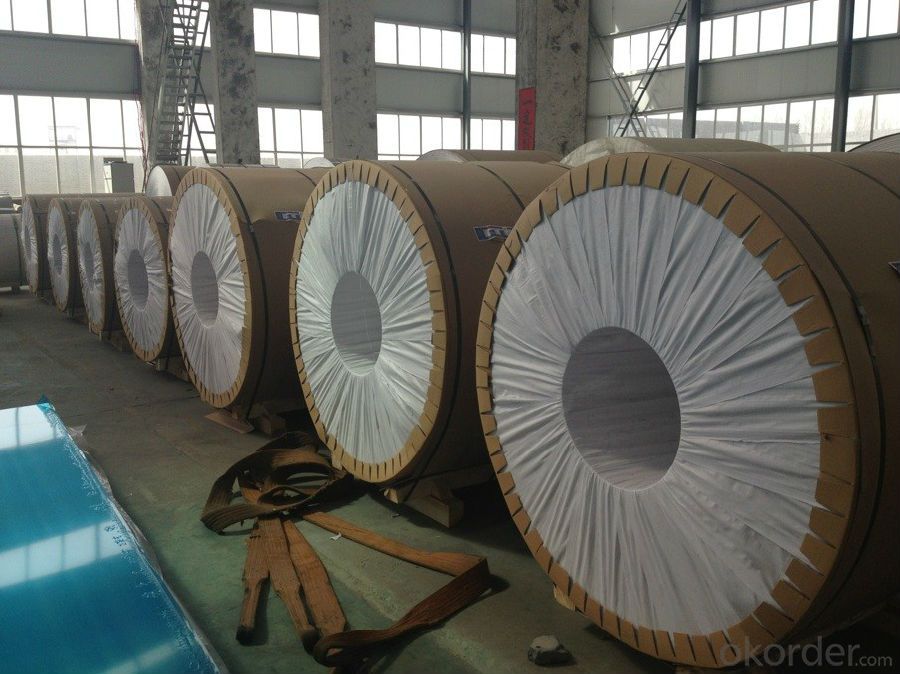
Our main products for aluminum coils are as follows:
Commodity | Alloy | Temper | Thickness /mm | Width /mm | |
Base material | 1235 1200 1140 8*** | H14 H18 | 0.25-1.00 | 950-1340 | |
Coil for PS | 1050 1060 | H18 | ≥0.2 | 830/920 1030/1050 | |
Sheets for PS | 1050 1060 1070 | H18 | 0.13-0.3 | 650-1300 | |
Strip for venetian blinds | 5052 | H19 | 0.13-0.3 | 300-1300 | |
Coils for composite panels | 1100 3003 3005 | H18/HX2 HX4/HX6 HX8 | 0.03-1.0 | 1000-1300 | |
Coils for other uses | 1100 1235 3004 5052 8011 | H14 H18 H24 O | 0.3-0.4 | 1000-1600 | |
Sheets/Strips for other uses | 5052 | O/H32/H34 | 0.07-2.0 | 950-1550 | |
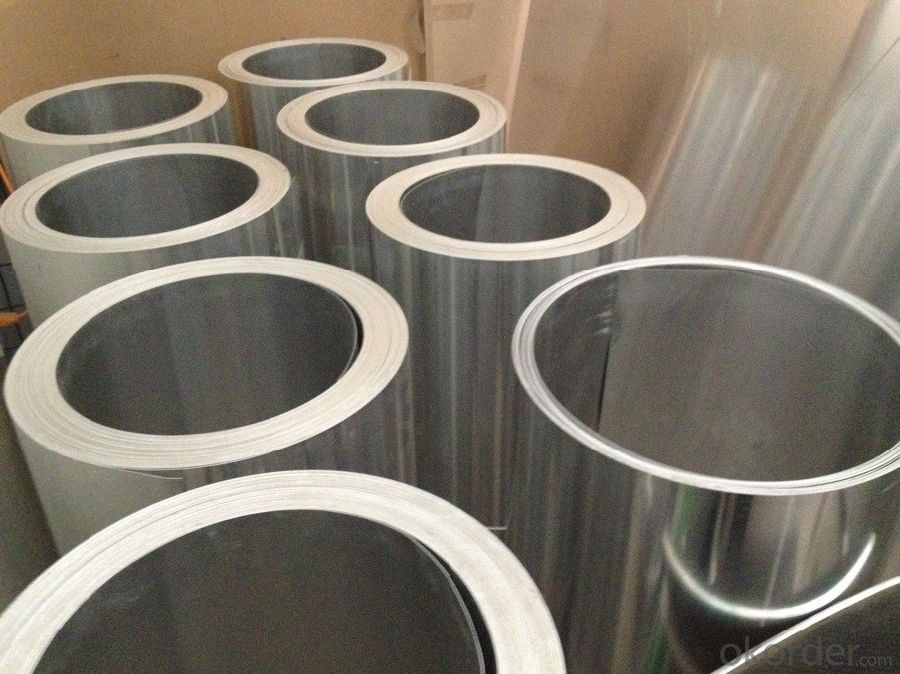
Our Services
CNBM is ready to assist with any product needs or enquiries. We value our customers and welcome your thoughts and feedback.
Please send comments, questions and requests through alibaba or our personal contact so they can be directed to the appropriate department.
About samples: Based on our company rules, a few samples are willing to be offered, but clients are requested to pay freight.
Working time:9:00~17:30(GM+8) from Monday to Friday, but you also can contact with us via personal contact information during our leisure time. We will try our best to offer you service in 24*7 hours.
Any quality, quantity problems are occured, response you will get in time not over more 24 hours after we recieve your complains. Problems will be solved in one week throught friendly negotiation.
- Q: Is it possible to utilize aluminum to enhance the durability and efficiency of batteries?
- <p>Yes, aluminum can be used to make batteries more durable and efficient. Aluminum's lightweight, high conductivity, and corrosion resistance make it a favorable material for battery components. In particular, aluminum-air batteries leverage aluminum's ability to provide a high energy density. Additionally, research is ongoing to improve lithium-ion batteries by using aluminum as a component in the anode, which can potentially increase energy storage capacity and lifespan. However, challenges such as aluminum's reactivity and the development of efficient recycling methods must be addressed for widespread adoption in battery technology.</p>
- Q: This question asks if there is a risk of lead contamination from old aluminum cans when they are recycled into new food containers.
- <p>There is no risk of lead leaching from old aluminum cans into food during recycling. Aluminum cans are made of aluminum and do not contain lead. The recycling process involves melting and re-forming the aluminum, which effectively removes any potential contaminants. Lead was used in some can linings in the past, but modern food cans are lined with non-toxic materials. Therefore, recycled aluminum cans pose no lead leaching risk to food safety.</p>
- Q: This question asks for an explanation of the environmental effects caused by the process of smelting aluminum.
- <p>The environmental impact of smelting aluminum is significant. It is an energy-intensive process that contributes to greenhouse gas emissions, primarily due to the high electricity consumption required for the Hall-H茅roult process. This process also generates perfluorocarbons (PFCs), which are potent greenhouse gases. Additionally, the production of aluminum releases particulate matter and sulfur dioxide, contributing to air pollution. The extraction of bauxite, the primary source of aluminum, can lead to deforestation and habitat destruction. Moreover, the waste products, such as red mud, can cause water pollution if not properly managed. Overall, the smelting of aluminum has considerable environmental implications, necessitating the development of more sustainable practices in the industry.</p>
- Q: Is it possible to recycle aluminum in countries other than one's own?
- <p>Yes, aluminum can be recycled in many countries around the world. Recycling aluminum is a global practice due to its economic and environmental benefits. The process involves melting down old aluminum products, which requires significantly less energy compared to producing aluminum from raw materials. This makes aluminum one of the most recycled materials globally, with a well-established recycling infrastructure in various countries. The recycled aluminum is used to manufacture new products, reducing waste and conserving resources.</p>
- Q: This question asks for examples of how recycled aluminum can be utilized.
- <p>Recycled aluminum has numerous applications, including the manufacturing of beverage cans, automotive parts, construction materials, and electronic components. It is also used in the production of aluminum foil, packaging materials, and various household items. Recycled aluminum is valued for its durability, lightweight properties, and energy efficiency in production, making it an environmentally friendly choice for many industries.</p>
- Q: What are some examples of alloys that can be created using aluminum as a base metal?
- <p>Aluminum can be alloyed with various elements to create a range of alloys, each with unique properties. Some common aluminum alloys include 1000 series (99% pure aluminum), 2000 series (aluminum-copper), 3000 series (aluminum- manganese), 5000 series (aluminum-magnesium), 6000 series (aluminum- magnesium- silicon), and 7000 series (aluminum-zinc). These alloys are used in different applications such as aerospace, automotive, construction, and packaging due to their strength, corrosion resistance, and light weight.</p>
- Q: Explain the distinctions between aluminum alloys and pure aluminum in a few sentences.
- <p>Aluminum alloys and pure aluminum differ in composition and properties. Pure aluminum is soft and has low strength, making it less suitable for structural applications. In contrast, aluminum alloys are made by combining aluminum with other elements like copper, magnesium, or silicon to enhance strength, durability, and resistance to corrosion. These alloys maintain the lightweight nature of aluminum while offering improved mechanical properties, making them ideal for various industries, including aerospace, automotive, and construction.</p>
- Q: This question asks about the consequences of corrosion on aluminum, including how it affects the material's properties and performance.
- <p>Corrosion on aluminum can lead to a loss of structural integrity, reduced strength, and increased brittleness. It can cause pitting, which is localized corrosion that leads to the formation of small holes or cavities on the surface. Over time, this can lead to material failure. Corrosion can also alter the appearance of aluminum, causing discoloration and a rough texture. In extreme cases, it can lead to the complete degradation of the aluminum, resulting in the loss of the material's functionality. Proper maintenance, such as applying protective coatings or using corrosion-resistant aluminum alloys, can mitigate these effects.</p>
- Q: Is aluminum a component in the manufacturing processes of glass and ceramics?
- <p>Aluminum can be used in the production of glass and ceramics, although it is not a primary component. In glassmaking, aluminum is sometimes added to reduce the coefficient of expansion, making the glass more resistant to thermal shock. It can also improve the chemical durability and electrical insulation properties of the glass. In ceramics, aluminum compounds are used as opacifiers, colorants, or to enhance the mechanical properties of the final product. However, the use of aluminum in these industries is typically in small quantities and serves specific purposes rather than being a fundamental part of the material composition.</p>
- Q: Are aluminum alloys suitable for use in the aerospace industry?
- <p>Yes, aluminum alloys are extensively used in aerospace applications due to their high strength-to-weight ratio, corrosion resistance, and good fatigue characteristics. They are particularly favored for constructing airframes, wings, and other structural components where weight savings are critical. The alloys are also used in manufacturing engine parts and heat exchangers due to their thermal conductivity and ability to withstand high temperatures. However, the specific alloy selection depends on the particular requirements of the application, such as temperature resistance, strength, and environmental conditions.</p>
Send your message to us
Aluminum Coated Aluminum Coil for Gutter Made in China
- Loading Port:
- Shanghai
- Payment Terms:
- TT OR LC
- Min Order Qty:
- 5 m.t.
- Supply Capability:
- 100000 m.t./month
OKorder Service Pledge
OKorder Financial Service
Similar products
Hot products
Hot Searches
Related keywords
